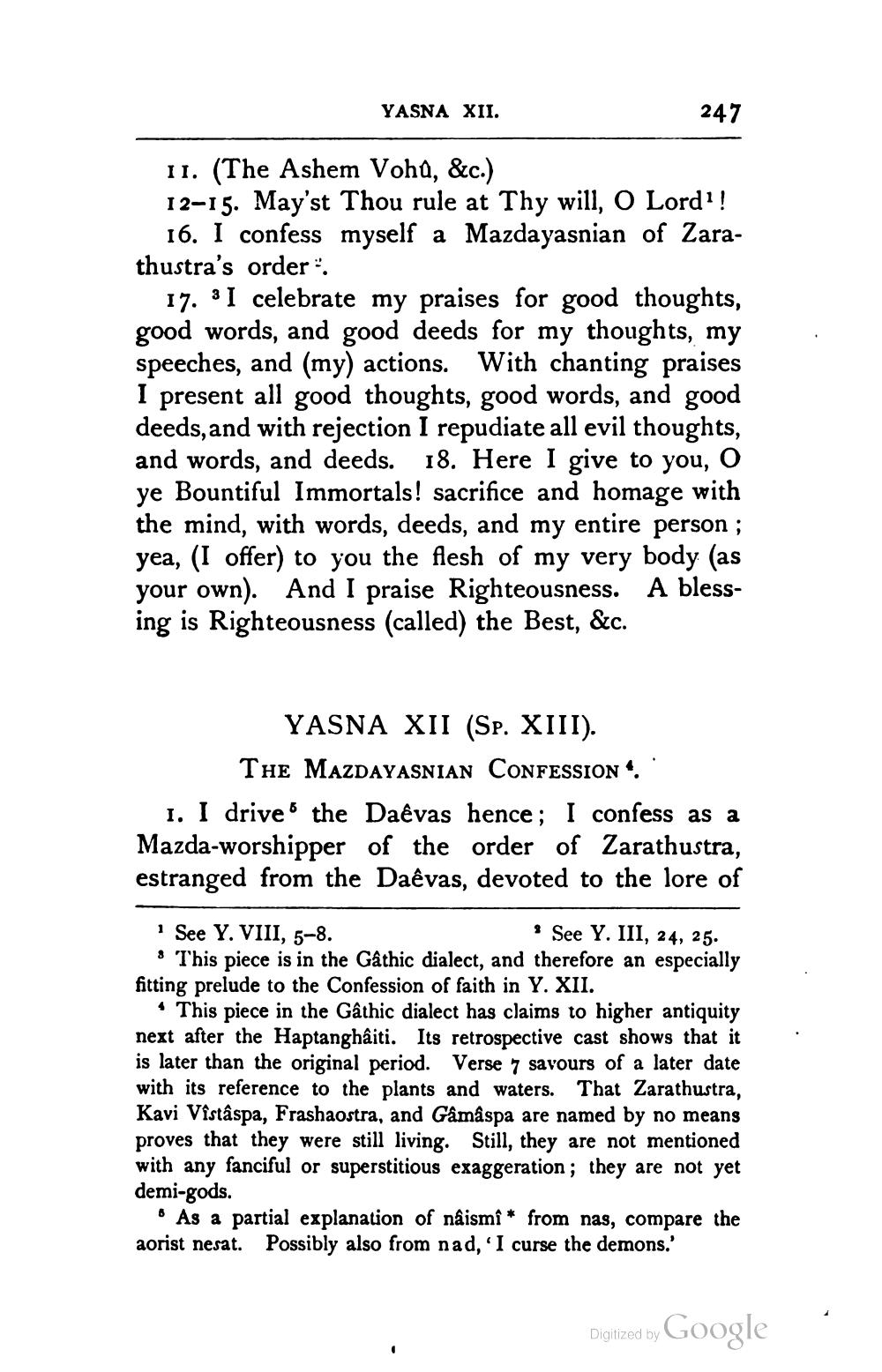________________
YASNA XII.
247
11. (The Ashem Vohu, &c.) 12-15. May'st Thou rule at Thy will, O Lord?!
16. I confess myself a Mazdayasnian of Zarathustra's order:
17. : I celebrate my praises for good thoughts, good words, and good deeds for my thoughts, my speeches, and (my) actions. With chanting praises I present all good thoughts, good words, and good deeds, and with rejection I repudiate all evil thoughts, and words, and deeds. 18. Here I give to you, O ye Bountiful Immortals! sacrifice and homage with the mind, with words, deeds, and my entire person ; yea, (I offer) to you the flesh of my very body (as your own). And I praise Righteousness. A blessing is Righteousness (called) the Best, &c.
YASNA XII (SP. XIII).
THE MAZDAYASNIAN CONFESSION .. 1. I drive the Daêvas hence; I confess as a Mazda-worshipper of the order of Zarathustra, estranged from the Daêvas, devoted to the lore of
See Y. VIII, 5-8.
I See Y. III, 24, 25. * This piece is in the Gathic dialect, and therefore an especially fitting prelude to the Confession of faith in Y. XII.
* This piece in the Gâthic dialect has claims to higher antiquity next after the Haptanghaiti. Its retrospective cast shows that it is later than the original period. Verse 7 savours of a later date with its reference to the plants and waters. That Zarathustra, Kavi Vîstâspa, Frashaostra, and Gåmåspa are named by no means proves that they were still living. Still, they are not mentioned with any fanciful or superstitious exaggeration; they are not yet demi-gods.
• As a partial explanation of nâismi * from nas, compare the aorist nesat. Possibly also from nad, 'I curse the demons.'
Digitized by Google
+
Digitized by




